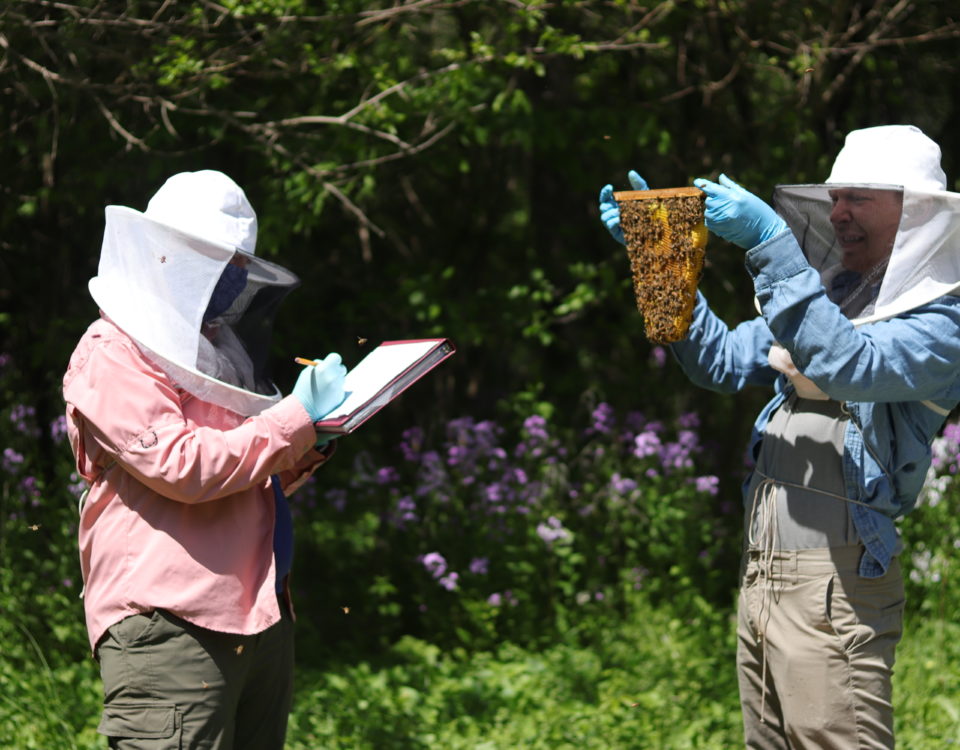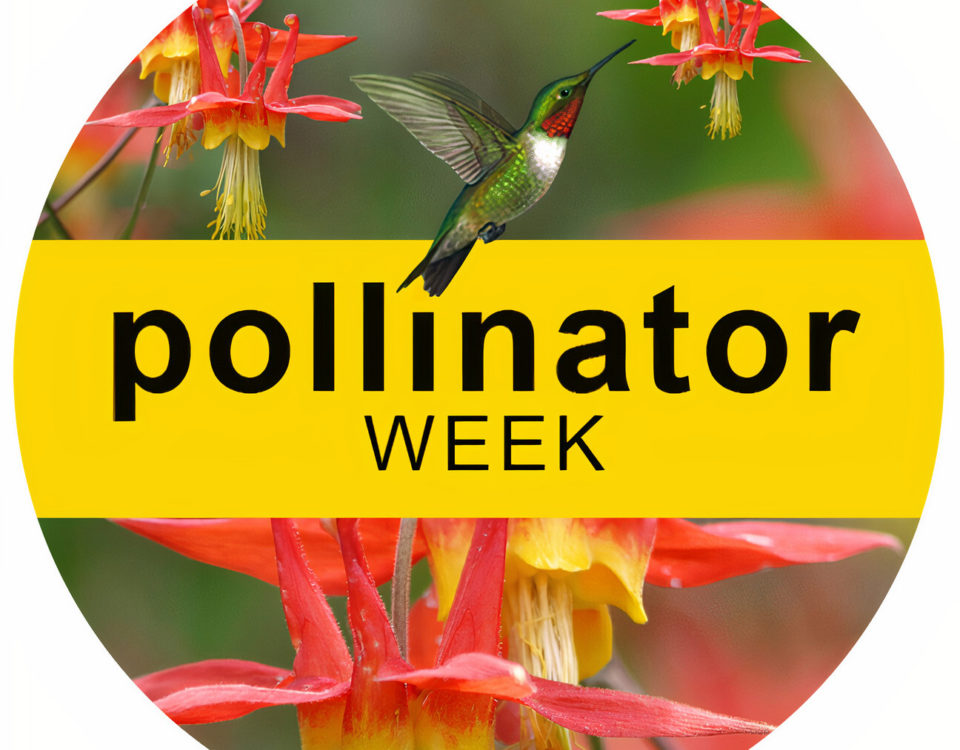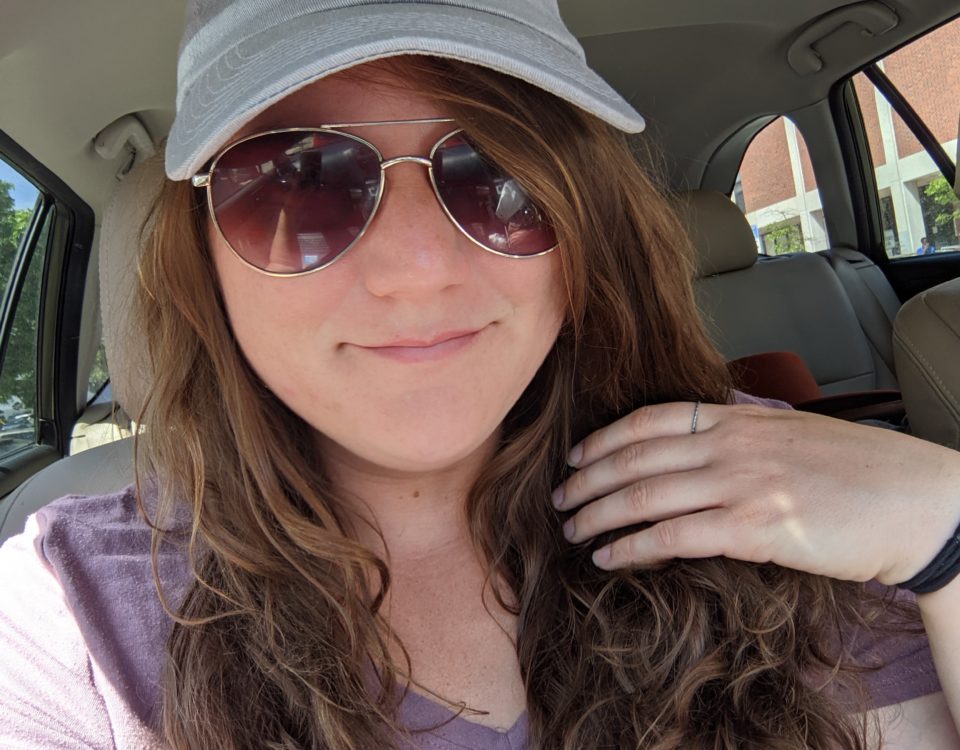- All-In-One Beekeeping for the Bees
- +1-608-728-8233
- info@beepods.com
Catching The Buzz: An Interview With Thor Hanson And The Impact Bees Have On Our Lives


The Beginning
If you would have asked me a little more than a year ago how I felt about bees I would have simply said that I liked them and that I knew they were vital for the environment. Ask me now and it’s clear bees have completely changed my life. Especially as I sit at my dining room table, buzzing with anticipation. In a few short seconds, I will be on the phone with Thor Hanson, a conservation biologist and author of the book Buzz: The Nature and Necessity of Bees.
I’ve fallen in love with bees in the last year and I have Beepods to thank for it.

I didn’t know what to expect as I began writing for Beepods, I never thought I’d write for a beekeeping company but it has helped open my eyes to our pollinator friends and why it’s important to protect them. I want to help other people learn and understand pollinators. I’ve already been dropping some bee knowledge and gaining a reputation as a bee lady with my friends. No shame here!

A photo a friend’s grandmother sent me because it reminder her of me.
While I was in a bookstore in Dubuque, IA browsing the fiction section a buddy of mine pointed out the natural science section. Sitting on the center display was Buzz. “You have to get this book,” he said. I thought I could use some of what I learned from Buzz to make my writing better. What I gained was a deeper understanding of pollinators and the connections they have with humans.
Buzz: Why We Need Bees
“Bees are like oxygen: ubiquitous, essential, and, for the most part, unseen.” Hanson’s words could not ring more true. While most people know of the famous honey bee and bumblebee, Hanson does an excellent job shedding light on some of the lesser-known, yet still important bee species around the world, like mason bees, leafcutter bees, and a favorite of his, the alkali bee.

Photo by Noah Hanson
“I wanted to write a book that didn’t focus on the honey bee,” Hanson said. Honey bees take up most of the shelf space when it comes to pollinators. However, honey bees are still vital to the ecosystem. As Hanson puts it, asking a melittologist about a honey bee is like asking an ornithologist about a chicken.
The book is broken down into four sections. In the first section, Hanson takes the reader back to prehistoric times when bees split from wasps. The main difference between a bee and a wasp is that bees are vegetarians. Anyone else get chills thinking of that? Bees evolved to solely live on nectar, pollen, and honey and now there are over 20,000 species of bees in the world with 4,000 of them living in the United States.
The second part of the book describes the coevolution of flowers and bees. Hanson included some hands-on observations in addition to feeding and nesting patterns along with the background on studies conducted by scientists like Charles Darwin.
Part three moves into the relationship that bees have with humans. Humans love honey and there is evidence of this appreciation found all over the world and throughout history. In modern times, humans raise bees for honey but also for mental health benefits. Many bumblebees find their nesting habitat in old shoes and other discarded human products. Hanson himself did many experiments trying to get bumblebees to nest in old rubber boots.
Section four, and possibly the most important section, is about the future of bees and how climate change is impacting them.
The Truth Stings

Bees have impacted all of our lives in a mostly positive way. They provide food, medicine, and commerce. But we don’t always give them the respect they deserve. During our interview, we discussed the 4 P’s: parasites, poor nutrition, pesticides, and pathogens and how invasive species, loss of habitat, and climate change have contributed to the decline of bees.
Even though bees are responsible for one of every three bites of food we take, bees aren’t always treated the way they should be. Colony Collapse Disorder (CCD) was first reported in 2006. Scientists weren’t sure of the initial cause, but now believe it has something to do with an illness honey bees contracted when they were sent to Asian countries to help pollinate crops.
Along with pathogens, bees have to fight against parasites like the Varroa mite. These nasty parasites live off the fat stores on bees until they die. Invasive species like the murder hornet have all contributed to the loss of colonies. The good news is, it seems that scientists have found a murder hornet nest and taken care of it.
Other contributing factors that come into play are loss of natural habitat and poor nutrition. Humans continue to cut down natural areas to build apartment complexes or farm fields that leave either no forage or become a monoculture for bees to survive off of, like the almond farms in California. Honey bees are also transported all over the United States for different growing seasons to help pollinate crops which puts a lot of stress on them. Along with farming comes pesticides. Bees are exposed to chemicals designed to kill insects that try and eat crops. While it may not kill bees right away, they can shorten a bee’s life span or prevent healthy brood from growing.
The major factor we discussed is climate change. “The US Military describes climate change as a threat multiplier,” Hanson said. And to date, it may be the best way I have heard it described. Climate change threatens to raise sea levels, forcing people to move inland. This forces more land to be developed into homes for people to live in. There is a risk that farmland will become fallow and food won’t be as easy to grow. And if we lose bees, we won’t be able to grow nutritious food at all. You can see where the problem comes in. Without food and a home, people will panic. But, there are changes we can make.
How We Can Help
There are already changes underway to help pollinators. Through his pages, Hanson talks about almond groves owned by General Mills that are planting strips of wildflowers to prevent a monoculture. Farmers have begun spraying pesticides on their crops at night while the bees are safe in the hive to prevent exposure. And younger generations are learning more about their environment and the impacts they have on it.
“Familiarity at a young age will help kids learn about bees,” Hanson said. “All children have a natural curiosity about the world around them. It’s only until they learn bees can sting that they become afraid.”
If you’re looking for more ways to help, Beepods has dozens of resources for planting pollinator-friendly gardens. Learn about it in the Sustainable Gardening 101 Course, available in Beepods Lab. Become a member of Beepods Lab and gain access to pollinator education for both young and old. Follow along with simple instructions to build your own mason bee homes, bee baths and create pollinator gardens in your yard or neighborhood.

Final Thoughts
Buzz is an educational and entertaining book on all things that buzz. I learned so much about pollinators and have found an even deeper appreciation for them. Thor Hanson writes with humor and intrigue. The language isn’t too technical so it’s easy enough for beginning bee enthusiasts to understand. Hanson ends his book with a question,“ Do you think there is hope for bees in the future?” He says yes. “Bees are naturally resilient and have survived for thousands of years. They’ll still be here, just not all of them.”
Beepods along with Buzz have helped me to slow down and enjoy the world around me. When I go for nature walks, I stop and check out the local pollinators hunting for forage. I search for areas where bees can build habitat, and I try and leave nature a little better than when I found it.
Learning about pollinators has taught me to be more respectful to the planet and it’s fragile ecosystems. And you would be amazed at how happy you will feel when you begin to notice little bees hard at work all around you.
Learn more about Thor Hanson’s work on NPR or his website.
Monica Cull
Latest posts by Monica Cull (see all)
- What Plants To Avoid In Your Pollinator Garden - May 28, 2021
- Bee Adventurous: On Mental Health And What Bees Have Done For Me - May 24, 2021
- Celebrate Endangered Species Day For The Bees - May 21, 2021



